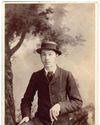
After nearly a month at sea, on 12 June1948, the British troopship HMT Empire Windrush anchored on a misty River Thames at Tilbury Docks, Essex. On board were 1,027 passengers and two stowaways.
More than 800 of those passengers gave their last place of residence as being the Caribbean. Many were anxious, believing a command would come for the ship to turn back. As they disembarked the following day, the mood was celebratory. Among those hoping for a new life in the United Kingdom was a future Mayor of Southwark, Sam King, who had served with the wartime RAF. His family had reportedly sold three cows to buy his ticket, which cost £28 10s, upwards of £600 today.
Another passenger looking to build life thousands of miles from home was Alford Gardner. Born in Jamaica in 1926, Gardner is one of only two known adult passengers alive today who travelled on the Windrush. He served as an engineer and motor mechanic during World War II before he demobbed and sailed back to Jamaica. Finding it difficult to settle, he felt his future was in the UK. Borrowing money from his father, he bought a ticket to travel with his older brother on the Windrush. Gardner finally settled in Leeds. Seventy years later, at the last count, he had 21 great-grandchildren and no regrets about his decision to move to the UK.
Photographer Jim Grover first met Gardner when he photographed and interviewed him for his 2018 1 reportage Windrush: Portrait of a Generation, which portrays the lives and traditions of the first generation of Caribbean migrants.
We are reintroduced to Gardner in Windrush: A Voyage Through the Generations, a new photography exhibition and book by Grover to mark the 75th anniversary of Windrush's arrival. The challenge for Grover was to deliver something new. 'I didn't want to just go back and focus on the first generation. All their stories are very moving and inspiring but I feel I've been there.
Denne historien er fra June 13, 2023-utgaven av Amateur Photographer.
Start din 7-dagers gratis prøveperiode på Magzter GOLD for å få tilgang til tusenvis av utvalgte premiumhistorier og 9000+ magasiner og aviser.
Allerede abonnent ? Logg på
Denne historien er fra June 13, 2023-utgaven av Amateur Photographer.
Start din 7-dagers gratis prøveperiode på Magzter GOLD for å få tilgang til tusenvis av utvalgte premiumhistorier og 9000+ magasiner og aviser.
Allerede abonnent? Logg på

Calling The Shots: A Queer History of Photography
Offering an unprecedented view of photographic history through a queer lens, this is a wonderful and powerful book, says

Large-aperture standard zoom, too
SONY has also revealed a new premium standard zoom, the FE 28-70mm F2 GM.

Super-fast, high-res Sony Alpha Ai II
SONY has announced its new professional full-frame flagship camera, the Alpha A1 II.

39 awesome accessories
Our round-up of the best accessories we've used and reviewed this year, along with some old favourites. There's something here for every budget, starting from just £7, including tripods, bags, filters and much more

Such a thing as society
This autumn sees the launch of a major new book and exhibition devoted to examining the multiplicities of photography during 1980s Britain. Peter Dench finds out more

Join Club
The sociable Canvey Island Photographic Club is keen to grow its in-person meet ups

Capturing flight
Winners and finalists of Bird Photographer of the Year share their tips for success with Hollie Latham Hucker

140 years of change
AP has become the world’s oldest surviving consumer photo magazine because we have moved with the times, says Nigel Atherton

Preserving history in platinum
A deep dive into the meticulous art of platinum printing, and the collaboration between the Royal Geographical Society and Salto Ulbeek. Mike Crawford explores how they brought historical photographs to life with enduring beauty and precision

Life in the past lane
What was life like for an amateur photographer in 1884? John Wade takes a trip back in time